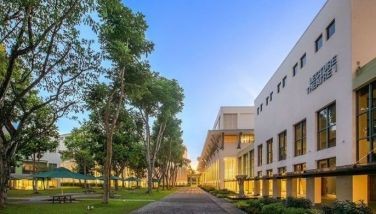EDITORIAL — Laggard in creativity

Here is another reason why the administration must see the importance of insulating the education sector from politics. The results of the 2022 Program on International Student Assessment Volume III, published last Tuesday, showed Filipino 15-year-olds ranking second to the worst among 64 countries in terms of creative thinking. It was the first PISA benchmarking of creativity.
Administered by the Organization for Economic Cooperation and Development, the 2022 PISA covered 690,000 students in 64 countries. The results showed Filipino 15-year-old high school students garnering a mean score of 14.2 in creative thinking – far below the global average of 33. About a fourth of students in the Philippines, Morocco and Saudi Arabia found learning new things boring, according to the OECD.
Creative thinking, as defined by the OECD, is “the competence to engage productively in the generation, evaluation and improvement of ideas that can result in original and effective solutions, advances in knowledge and impactful expressions of imagination.”
The one-hour test covered written and visual expression, social problem-solving and scientific problem-solving. Performance in creative thinking, the OECD said, “correlates positively” to performance in mathematics, science and reading comprehension – areas where Filipino 15-year-olds had also ranked the worst or near the bottom in two previous PISA tests.
While there are many factors that influence creativity, education can stimulate it and plays a critical role, particularly in early childhood and adolescence. In the assessment, students were asked to provide several original solutions to familiar problems and simple expressive tasks. In nearly a fifth of the items, Filipino participants failed to provide responses.
Creative thinking affects national competitiveness and overall progress. It’s no coincidence that students who performed well in this assessment on creative thinking are from advanced economies. Singapore, Southeast Asia’s overachiever, topped the list with a score of 41, followed by South Korea, Canada, Australia, New Zealand, Estonia, Finland, Denmark, Latvia and Belgium. The Philippines was ahead only of Albania, which scored lowest with 13.
Philippine education was already deteriorating before the pandemic. Education experts have noted that remote or hybrid learning during the COVID lockdowns, which was meant to ensure that no pupil would be left behind, in fact widened the learning gap in the country. With a politician at the helm of the Department of Education since 2022, critics say that those were two more years lost in Filipinos’ formal education. The next DepEd chief must be able to fully focus and competently address this national crisis.
- Latest
- Trending


























